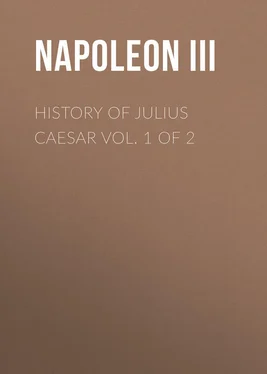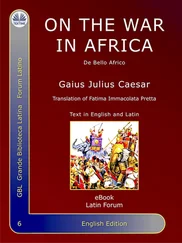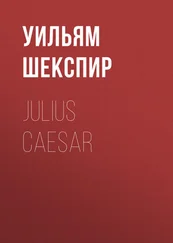Napoleon III - History of Julius Caesar Vol. 1 of 2
Здесь есть возможность читать онлайн «Napoleon III - History of Julius Caesar Vol. 1 of 2» — ознакомительный отрывок электронной книги совершенно бесплатно, а после прочтения отрывка купить полную версию. В некоторых случаях можно слушать аудио, скачать через торрент в формате fb2 и присутствует краткое содержание. Жанр: foreign_antique, foreign_prose, Биографии и Мемуары, на английском языке. Описание произведения, (предисловие) а так же отзывы посетителей доступны на портале библиотеки ЛибКат.
- Название:History of Julius Caesar Vol. 1 of 2
- Автор:
- Жанр:
- Год:неизвестен
- ISBN:нет данных
- Рейтинг книги:5 / 5. Голосов: 1
-
Избранное:Добавить в избранное
- Отзывы:
-
Ваша оценка:
- 100
- 1
- 2
- 3
- 4
- 5
History of Julius Caesar Vol. 1 of 2: краткое содержание, описание и аннотация
Предлагаем к чтению аннотацию, описание, краткое содержание или предисловие (зависит от того, что написал сам автор книги «History of Julius Caesar Vol. 1 of 2»). Если вы не нашли необходимую информацию о книге — напишите в комментариях, мы постараемся отыскать её.
History of Julius Caesar Vol. 1 of 2 — читать онлайн ознакомительный отрывок
Ниже представлен текст книги, разбитый по страницам. Система сохранения места последней прочитанной страницы, позволяет с удобством читать онлайн бесплатно книгу «History of Julius Caesar Vol. 1 of 2», без необходимости каждый раз заново искать на чём Вы остановились. Поставьте закладку, и сможете в любой момент перейти на страницу, на которой закончили чтение.
Интервал:
Закладка:
The celebrity of Rhodes was no less great in arts and letters than in commerce. After the reign of Alexander, it became the seat of a famous school of sculpture and painting, from which issued Protogenes and the authors of the Laocoon and the Farnese Bull . The town contained three thousand statues, 465and a hundred and six colossi, among others the famous Statue of the Sun, one of the seven wonders of the world, a hundred and five feet high, the cost of which had been three thousand talents (17,400,000 francs [£696,000]). 466The school of rhetoric at Rhodes was frequented by students who repaired thither from all parts of Greece, and Cæsar, as well as Cicero, went there to perfect themselves in the art of oratory.
The other islands of the Ægean Sea had nearly all lost their political importance, and their commercial life was absorbed by the new states of Asia Minor, Macedonia, and Rhodes. It was not so with the Archipelago of the Ionian Sea, the prosperity of which continued until the moment when it fell into the power of the Romans. Corcyra, which received into its port the Roman forces, owed to its fertility and favourable position an extensive commerce. The rival of Corinth since the fourth century, she became corrupted like Byzantium and Zacynthus ( Zante ), which Agatharchides, towards 640, represents as grown effeminate by excess of luxury. 467
Sardinia.
XXI. The flourishing condition of Sardinia arose especially from the colonies which Carthage had planted in it. The population of this island rendered itself formidable to the Romans by its spirit of independence. 468From 541 469to 580, 130,000 men were slain, taken, or sold. 470The number of these last was so considerable, that the expression Sardinians to sell ( Sardi venales ) became proverbial. 471Sardinia, which now counts not more than 544,000 inhabitants, then possessed at least a million. Its quantity of corn, and numerous herds of cattle, made of this island the second granary of Carthage. 472The avidity of the Romans soon exhausted it. Yet, in 552, the harvests were still so abundant, that there were merchants who were obliged to abandon the wheat to the sailors for the price of the freight. 473The working of the mines and the trade in wool of a superior quality 474occupied thousands of hands.
Corsica.
XXII. Corsica was much less populous. Diodorus Siculus gives it hardly more than 30,000 inhabitants, 475and Strabo represents them as savages, and living in the mountains. 476According to Pliny, however, it had thirty towns. 477Resin, wax, honey, 478exported from factories founded by the Etruscans and Phocæans on the coasts, were almost the only products of the island.
Sicily.
XXIII. Sicily, called by the ancients the favourite abode of Ceres, owed its name to the Sicani or Siculi, a race which had once peopled a part of Italy; Phœnician colonies, and afterwards Greek colonies, had established themselves in it. In 371, the Greeks occupied the eastern part, about two-thirds of the island; the Carthaginians, the western part. Sicily, on account of its prodigious fertility, was, as may be supposed, coveted by both peoples; it was soon the same in regard to the Romans, and, after the conquest, it became the granary of Italy. 479The orations of Cicero against Verres show the prodigious quantities of wheat which it sent, and to what a great sum the tenths or taxes amounted, which procured immense profits to the farmers of the revenues. 480
The towns which, under Roman rule, declined, were possessed of considerable importance at the time of which we are speaking. The first among them, Syracuse, the capital of Hiero’s kingdom, contained 600,000 souls; it was composed of six quarters, comprised in a circumference of 180 stadia (36 kilometres); it furnished, when it was conquered, a booty equal to that of Carthage. 481Other cities rivalled Syracuse in extent and power. Agrigentum, in the time of the first Punic war, contained 50,000 soldiers; 482it was one of the principal garrisons in Sicily. 483Panormus ( Palermo ), Drepana ( Trapani ), and Lilybæum ( Marsala ), possessed arsenals, docks for ship-building, and vast ports. The roadstead of Messina was capable of holding 600 vessels. 484Sicily is still the richest country in ancient monuments; our admiration is excited by the ruins of twenty-one temples and of eleven theatres, among others that of Taormina, which contained 40,000 spectators. 485
This concise description of the countries bordering on the Mediterranean, two or three hundred years before our era, shows sufficiently the state of prosperity of the different peoples who inhabited them. The remembrance of such greatness inspires a very natural wish, namely, that henceforth the jealousy of the great powers may no longer prevent the East from shaking off the dust of twenty centuries, and from being born again to life and civilisation!
CHAPTER V.
PUNIC WARS AND WARS OF MACEDONIA AND ASIA
Comparison between Rome and Carthage.
I. ROME, having extended her dominion to the southern extremity of Italy, found herself in face of a power which, by the force of circumstances, was to become her rival.
Carthage, situated on the part of the African coast nearest to Sicily, was only separated from it by the channel of Malta, which divides the great basin of the Mediterranean in two. She had, during more than two centuries, concluded, from time to time, treaties with Rome, and, with a want of foresight of the future, congratulated the Senate every time it had gained great advantages over the Etruscans or the Samnites.
The superiority of Carthage at the beginning of the Punic wars was evident; yet the constitution of the two cities might have led any one to foresee which in the end must be the master. A powerful aristocracy reigned in both; but at Rome the nobles, identified continually with the people, set an example of patriotism and of all civic virtues, while at Carthage the leading families, enriched by commerce, made effeminate by an unbridled luxury, formed a selfish and greedy caste, distinct from the rest of the citizens. At Rome, the sole motive of action was glory, the principal occupation war, and the first duty military service. At Carthage, everything was sacrificed to interest and commerce; and the defence of the fatherland was, as an insupportable burden, abandoned to mercenaries. Hence, after a defeat, at Carthage the army was recruited with difficulty; at Rome it immediately recruited itself, because the populace was subject to the recruitment. If the poverty of the treasury caused the pay of the troops to be delayed, the Carthaginian soldiers mutinied, and placed the State in danger; the Romans supported privations and suffering without a murmur, out of mere love for their country.
Конец ознакомительного фрагмента.
Текст предоставлен ООО «ЛитРес».
Прочитайте эту книгу целиком, купив полную легальную версию на ЛитРес.
Безопасно оплатить книгу можно банковской картой Visa, MasterCard, Maestro, со счета мобильного телефона, с платежного терминала, в салоне МТС или Связной, через PayPal, WebMoney, Яндекс.Деньги, QIWI Кошелек, бонусными картами или другим удобным Вам способом.
1
Montesquieu, Grandeur et Décadence des Romains , xviii.
2
Интервал:
Закладка:
Похожие книги на «History of Julius Caesar Vol. 1 of 2»
Представляем Вашему вниманию похожие книги на «History of Julius Caesar Vol. 1 of 2» списком для выбора. Мы отобрали схожую по названию и смыслу литературу в надежде предоставить читателям больше вариантов отыскать новые, интересные, ещё непрочитанные произведения.
Обсуждение, отзывы о книге «History of Julius Caesar Vol. 1 of 2» и просто собственные мнения читателей. Оставьте ваши комментарии, напишите, что Вы думаете о произведении, его смысле или главных героях. Укажите что конкретно понравилось, а что нет, и почему Вы так считаете.












